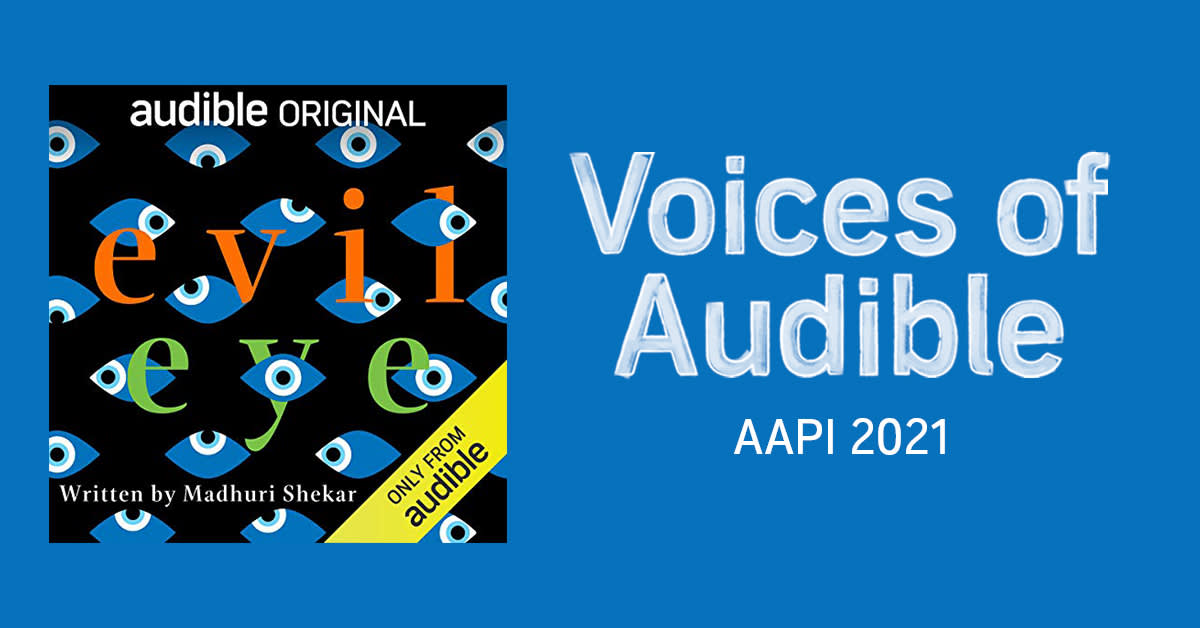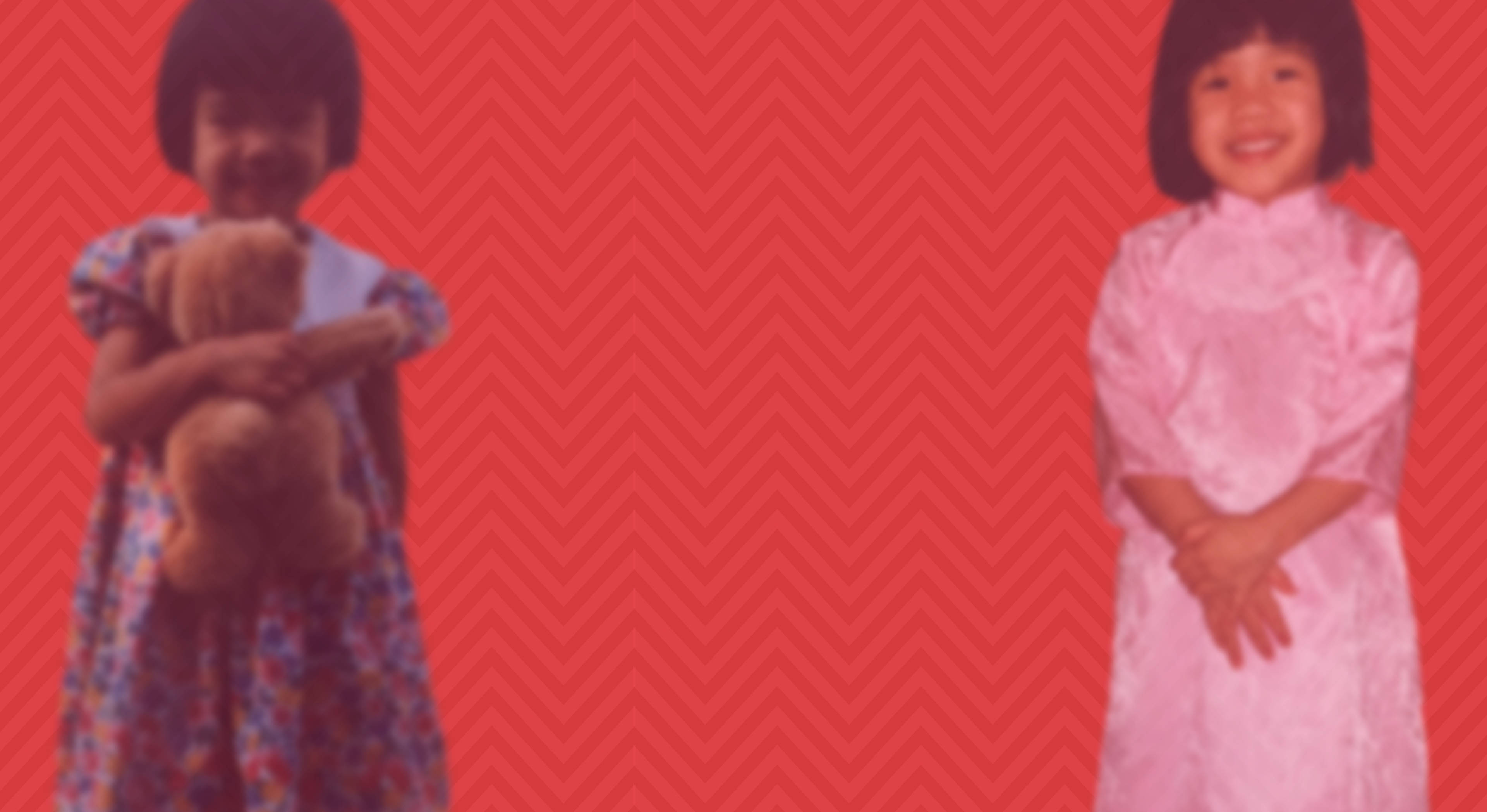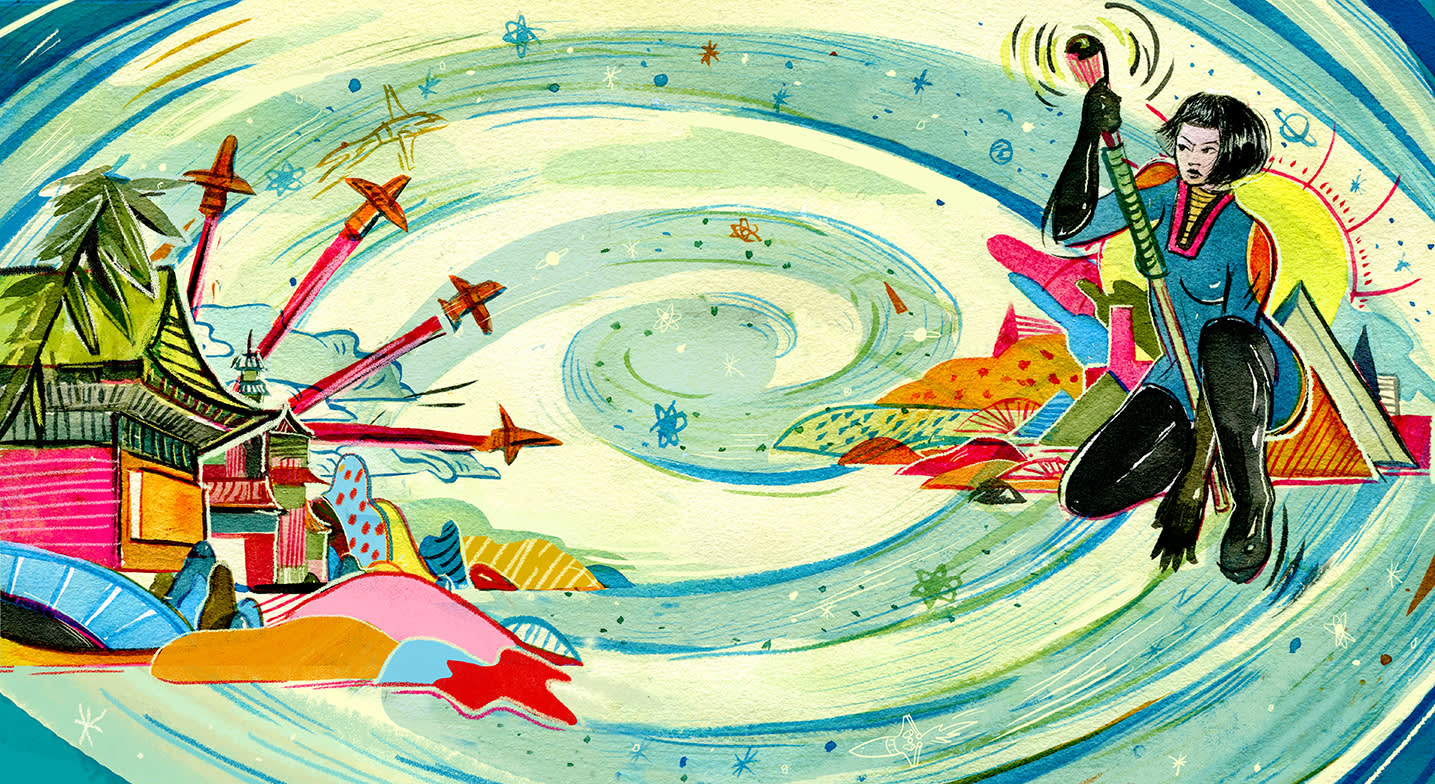We at Audible celebrate Asian American and Pacific Islander Heritage Month every May, but this year, what should be a glorious celebration of the rich and diverse cultures of Asia is mingled with sadness and worry over dual crises: the horrifying surge of Covid-19 cases in India and a devastating rise in discrimination and violence against Asian Americans during the pandemic. In the spirit of coming together to honor each other's humanity, we asked our colleagues to share stories that helped them feel seen, inspired their thinking, and show the breadth of Asian and Asian American experiences in all their diversity.

Jeffrey, Customer Care
It’s been an especially difficult year for Asian Americans. Do you mind telling us how you’re feeling? As an Asian American, I believe this recent surge and media attention on discrimination, racism, and violence against our community is nothing new. I understand the challenges many have had to face throughout American history, and I always felt that as a community, we needed to step up and voice our concerns. With social media and the national media, this is the moment where the AAPI community can unite and show strength. I’m proud to be Asian, and I hope one day we will never have to feel ashamed about who we are and how we look. Eventually, we will overcome the hate, discrimination, stereotypes, and racism that have been directed at the AAPI community throughout history.
Can you share a listen from an AAPI creator that made you feel seen? Jimmy O. Yang was not born in America, but immigrated as a child. His memoir How to American helps shed light on that experience. As a comedian, he made the story funny and interesting to hear. It also made me realize that at a young age, I lacked empathy and misunderstood my Asian community. It made me reflect on how disconnected I was as a child; I was no different from them and their challenges. I regret the fact that I didn’t try to connect as much with my Asian peers. They probably were looking to find a friend, and I was blind to that back then.
Was there a particular part that resonated with you? In the title, Jimmy talks about how he will never pass up a role that may look stereotypical or have a character with an Asian accent, because he understands that could have been him when he was growing up. He didn’t want to pass up an opportunity to represent the Asian community that are immigrants or had faced the same challenges he did. That really had an impact on how I view our representation. It made me think about not just the scope of a first generation Asian American, but also provided a lens on just being Asian in this country.
“I’m proud to be Asian, and hope one day we will never have to feel ashamed about who we are and how we look.”
Recognizing how diverse and multifaceted the Asian community is, what does
being Asian mean to you? It means a lot to me. I used to wonder why I had to identify myself as Asian American and not just American when I was younger. Now, I’m proud to say I’m Vietnamese and Chinese. I’m not ashamed to say I am Asian American and at times I prefer to just say, yes, I’m Asian. Our culture is so diverse and rich in history—I want all Asians to educate the public on the differences of the cultures within our AAPI community and showcase that we’re not all the same. I also understand that after I finish explaining the differences, some people will still view me as Chinese, but I will continue to educate and share my experience!

Sonia, Content Acquisition
Which listen by an AAPI creator are you recommending for us? The Three-Body Problem, one of the first English-translated Chinese science fiction books that I've experienced, is an unforgettable journey. How author Cixin Liu imagines and thinks about the future is very different from Western writing. The trilogy covers an incredible scale of time and vision while intricately weaving in Chinese history and sophisticated scientific expositions with masterful detail. It’s educational, thought-provoking, and super nerdy. I also recommend the third book in the trilogy, in which the universe is perceived in its grandest scale, reflecting the influence of the Eastern worldview.
What about it resonated with you? It was refreshing to hear a science fiction story that is told through the lens of an Eastern viewpoint. For me, it’s a window into a different ideology, as well as embedded with political and social commentaries we’re not exposed to. Also, it covers the classic science fiction question of what happens when the human race encounters an extraterrestrial intelligence. Which leads me to wonder: How can we be so divided when there’s such a big world out there?
“I am hopeful to see light being shed on important problems we need to solve. With such enlightenment, there’s hope for progress.”
What does being Asian mean to you, especially now? Being an Asian American, I feel I’m caught between two worlds, never belonging to either one completely. Growing up in the US, I tried to assimilate myself into American culture, which was often at odds with my Korean heritage. When I looked for a role model, it was nearly impossible to find one, especially in the media. Nevertheless, thanks to my family I’ve learned to deeply value the strengths of Korean culture, such as respecting our elders, working hard, and embracing the community and its traditions.
It’s been heartbreaking and frightening to see increased violence against Asians, especially targeting elders. But I am hopeful to see light being shed on important problems we need to solve. With such enlightenment, there’s hope for progress. I hope to contribute by helping elevate Asian voices and creators through our platform, and create connections in a way that reflects a positive future.

Justin, Customer Service
How are you feeling as an Asian American these days? It’s been incredibly disheartening to tune into the news lately, only to hear about another attack on an elderly Asian person, the death of Daunte Wright just miles from Derek Chauvin’s trial, or yet another shooting. Sure, Asians have had it tough this year. When I step outside my apartment, there is this constant fear that a random person on the street might attack me or my fiancée. But I take a step back and remember that many Black people have always felt this way—only they feared for their lives from the police, those sworn to protect them. This great injustice, which has persisted for far longer than Asians being attacked, puts my own struggles in perspective. However, it certainly doesn’t justify the attacks or nullify decades of prejudice that Asians have faced. Recent events have evoked Martin Niemöller’s famous “First they came...” Holocaust quote, which for me symbolizes the importance of allyship. We must do more than defend ourselves—we must defend those around us.
Can you share a listen from an AAPI creator that made you feel seen? Evil Eye by Madhuri Shekar. The broad theme of family and, in particular, the mother-daughter relationship struck a chord with me as I reflected on my relationship with my own mother. I’m third generation, born in the US with American ways of thinking, raised primarily by my mom who emigrated from China when she was in her 20s. So the tension between the different cultural upbringings, the more Westernized daughter with a more Eastern-valued mother, resonated with me because she is superstitious and overbearing. I was reminded of arguments I’ve had with my mom where I refused to make major life decisions for myself because of her superstitions. Like the story’s daughter, I too realized my mother’s actions were out of love.
“For some reason, people are extra-interested in figuring out which kind of Asian I am right away, but why does it matter?”
What does being Asian mean to you? “Being Asian” means I get both positive and negative stereotypes applied to me. “Being Asian” means some people look at me and don’t see an American. In fact, “Being Asian” tugs at the dissonance in my life arising from being ethnically Chinese but American in culture and nationality—and everybody else only seeing me as Chinese. It comes to the surface when people ask where I'm from. I’ll debate whether I should answer “Long Island City” (where I live), or “Connecticut, but I was born in Boston”, or “Hong Kong” (where my parents emigrated from). Often, people are looking for that last answer, and though not necessarily malicious or ill-willed, it serves to remind me that it’s easier for some to see me as a member of my race than as an individual. For some reason, people are extra-interested in figuring out which kind of Asian I am right away, but why does it matter? The achievements and atrocities of my race are not my own, nor does my race define me. Despite these relatively minor challenges, I’m proud to be an Asian American. I’m proud of the challenges my parents and grandparents overcame, and the sacrifices they made, so my sister and I could have a huge head start in life.

Carolyn, UX
What pick are you recommending to celebrate AAPI Heritage Month? Ling Ma’s Severance really nails what it means to be Asian in America today. In this satirical novel about a global apocalypse, Candace Chen is one of the only survivors of a pandemic that turns people into zombies. The story goes back and forth between her childhood in China and her life in New York. She later joins a group of survivors on their journey to Chicago. No matter what, Candace continues to plug away at her job because she’s been promised a future severance.
Why do you think this listen resonated so deeply with you? I think I connected so deeply to Severance because the character lacks a sense of home and belonging—I moved back and forth between Taiwan and the US when I was growing up, and didn’t feel like I considered either my 'hometown.' It also explores what it feels like to be a first generation immigrant and to be 'in-between' cultures, and offers sharp observations about what it means to be Asian in America today.

Kat, Editorial
What does celebrating AAPI Heritage Month look like for you? I am not Asian American, but I feel a strong connection to Asian cultures. I was born in the Philippines (to white American parents), though we moved away when I was young. My husband is second generation Indian American, and our kids are half South Asian. At home, I invariably cook East Asian cuisine of one kind or another—it’s just the food that tastes most delicious to me, and I know it’s kind of superficial, but it’s always made me feel closer to those cultures. But clearly, I’m not racially or culturally Asian. I don’t have the lived experience to really understand what my friends, colleagues, neighbors, and fellow humans of Asian origin are feeling as a heartbreaking rise in hostility and violence has sprung up during the pandemic…even as this bigotry has existed far longer in American history.
Though my natural inclination to be both shy and circumspect often inhibits me from speaking out, I am trying to embrace Cathy Park Hong’s incredible quote, which hit me like a lightning bolt in her book Minor Feelings: “The problem with silence is that it can’t speak up and say why it’s silent. And so silence collects, becomes amplified, takes on a life outside our intentions, in that silence can get misread as indifference, or avoidance, or even shame, and eventually this silence passes over into forgetting.”
We can’t be silent on the topic of racism and hate. This month more than ever, I am trying to show up for the AAPI community by speaking up more, celebrating and elevating the work of AAPI creators and performers in my own listening and through my role at Audible, donating to pro-AAPI groups and to the crisis in India, and by having honest, productive, and humbling conversations with my kids about race, their heritage, and what we can do, personally and collectively, to combat racism.
What listen are you recommending for us today? So many! Some of my favorite recent listens are by AAPI authors—you cannot go wrong with the aforementioned Minor Feelings, Charles Yu’s Interior
Chinatown, David Chang’s Eat
a Peach, Mary HK Choi’s Yolk, and Viet Thanh Nguyen’s The
Committed. But in thinking about antiracist
parenting in particular, I really love Mira Jacob’s Good Talk.
What did you love about it? This amazing, heartfelt memoir is the story of an Indian American mom who tries to help her six-year-old son Z understand his biracial identity, starting with his entirely relatable fascination with Michael Jackson. Interweaving Z’s constant stream of good questions with anecdotes from her own life, this full-cast adaptation of a graphic novel is one of the most unique yet approachable audio experiences I’ve ever come across. With both adults and kids, my goal is to not avoid these messy conversations, no matter how tough they are, and Mira’s thoughtful but perplexed and somewhat world-weary approach is my guiding light. Just listen to it!








